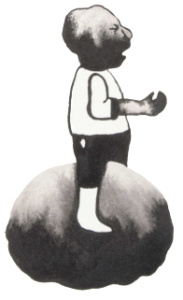 In 1996, criminal investigators raided the activist magazine Ravage in Amsterdam, prompted by a claim letter Ravage had received about a bomb attack. At the end of 2009, Ravage reported that after more than twelve years of litigation the battle about the lawfulness of the search had been decided in favor of the State. In May 1996, criminal investigators raided the office of the then activist magazine Ravage in Amsterdam, prompted by a claim letter Ravage had received that referred to a bomb attack on the company BASF in Arnhem. The claim letter had already been destroyed by the editors, but the detectives impounded computers with the subscriber file, address lists, registration coupons, address wrappers, a diary, a phone index, a typewriter, data on contact persons and other editorial materials and personal data of editors.
In 1996, criminal investigators raided the activist magazine Ravage in Amsterdam, prompted by a claim letter Ravage had received about a bomb attack. At the end of 2009, Ravage reported that after more than twelve years of litigation the battle about the lawfulness of the search had been decided in favor of the State. In May 1996, criminal investigators raided the office of the then activist magazine Ravage in Amsterdam, prompted by a claim letter Ravage had received that referred to a bomb attack on the company BASF in Arnhem. The claim letter had already been destroyed by the editors, but the detectives impounded computers with the subscriber file, address lists, registration coupons, address wrappers, a diary, a phone index, a typewriter, data on contact persons and other editorial materials and personal data of editors.
Ravage brought proceedings against the State because it considered the search to be unlawful and an infringement of Articles 8 and 10 of the ECHR, in particular of its right to protect its sources. In preliminary relief proceedings the Court found for Ravage. In the subsequent proceedings on the merits, Ravage’s claim for damages was denied by the Court and on appeal by the Court of Appeal of The Hague.
With the judgment of the Supreme Court of 2 September 2005 the tide seemed to be in Ravage’s favor again. The Supreme Court set aside the judgment of the Court of Appeal of The Hague because the Court of Appeal had failed to recognize that the obligation to furnish facts and the burden of proof are on the State with regard to the non-existence of less drastic means (the requirement of subsidiarity) than searching the premises and impounding things, and the Court of Appeal had not argued sufficiently that the impounding of the computers (including the data on them) and the other materials was not disproportionate (the requirement of proportionality). The case was then referred to the Court of Appeal of Amsterdam. However, this Court of Appeal ruled again that the search had been in accordance with the requirements of proportionality and subsidiarity, which must be fulfilled in order to consider an infringement of the rights guaranteed by Articles 8 and 10 of the ECHR to be necessary in a democratic society in the interest of public order and for the prevention of crime. Ravage appealed again to the Supreme Court.
At the end of December 2009 Ravage reported that after more than twelve years of litigation the legal battle in the Dutch courts had ended. On 18 September 2009 the Supreme Court rejected the appeal of Ravage against the judgment of the Court of Appeal of Amsterdam. The editorial board is now considering bringing proceedings before the European Court of Human Rights in Strasbourg.

